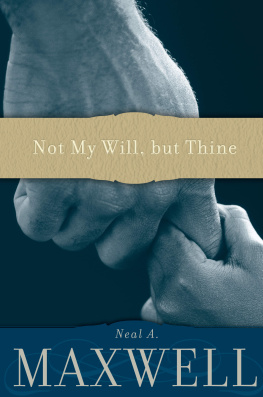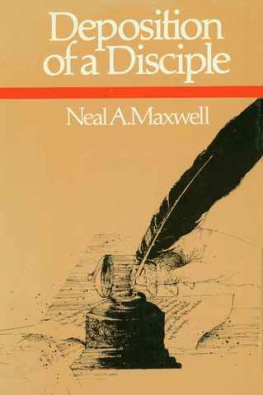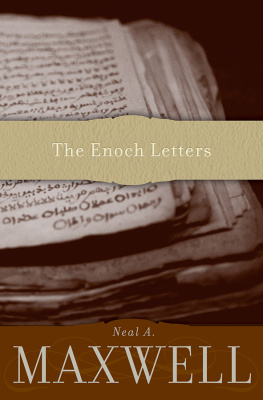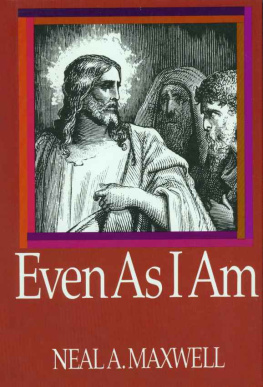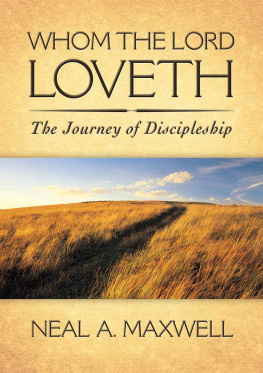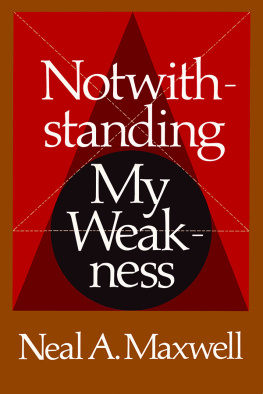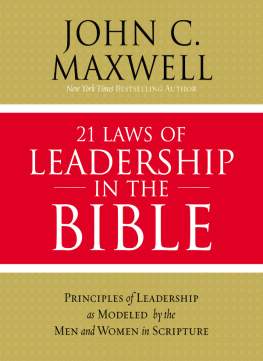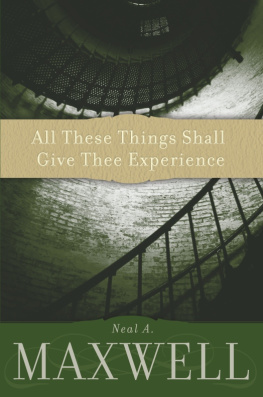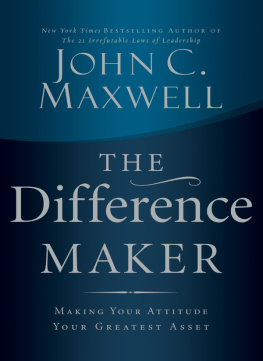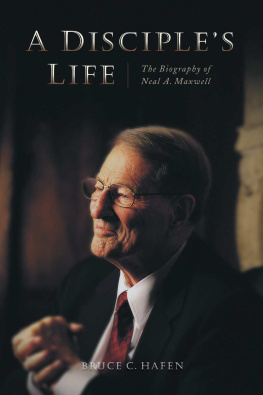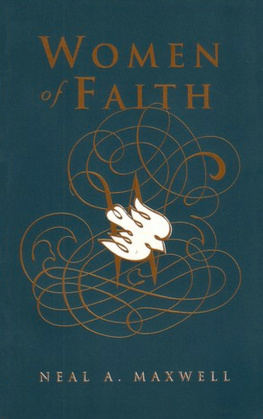2008 Deseret Book Company
All rights reserved. No part of this book may be reproduced in any form or by any means without permission in writing from th epublisher, Deseret Book Company,
P.0. Box 30178, Salt Lake City, Utah 84130. This work is not an official publication of The Church ofJesus Christ of Latter-day Saints. The views expressed herein are the responsibility of the author and do not necessarily represent the position of the Church or of Deseret Book Company.
DESERET BOOK is a registered trademark ofDeseret Book Company.
First printing inhardbound 1988
First printing in paperbound 2008
Visit us at DeseretBook.com
Library of Congress Catalog Card Number:88-71858
ISBN 0-88494-672-X (hardbound)
ISBN 978-1-59038-875-4 (paperbound)
eISBN 978-1-60641-481-1 (eBook)
Printed in theUnited States ofAmerica
Publishers Printing, Salt Lake City, UT
1098765432
Contents
Acknowledgments
As always, I have not worked alone.
My gratitude is expressed to Elizabeth Haglund, who helped me when things were in a formative stage. Similarly, my appreciation i sexpressed to Dan Ludlow for his specific suggestions. Luke Ong was kind enough, once again, to provide computer runs on relevant scriptures. Susan Jackson not only typed this manuscript but also made valuable suggestions. Richard Turley and Grant Anderson graciously supplied some needed historical material. Elder Marion D. Hanks, without knowing it, enriched the manuscript by earlier gospel conversations. George Bickerstaff, an excellent editor, was especially helpful, and Cory Maxwell, while a supportive son, cared enough to be candid in his gentle suggestions.
This is not an official Church publication. Hence, even though I was helped in its preparation, I alone am responsible for theviews it expresses.
As Obedient Children
I n todays society, at the mere mention of the words obedience and submissiveness hackles rise and people are put on nervous alert. These virtues are unfashionable because many quickly assume them to be at hreat to ones independence and agency. People promptly furnish examples from secular history to illustrate how obedience to unwise authority and servility to bad leaders have caused much human misery and suffering. It is difficult, therefore, to get a hearing for what the words obedience and submissiveness really meaneven when the clarifying phrase, to God, is attached.
We are well conditioned indeed.
Yet such guardedness would be unseemly for disciples of Christ, who should be willing to submit, this being a major quality inherent in saintliness, as King Benjamin doubly declared (Mosiah 3:19). Ironically, he who constitutes the greatest real threat to our freedom knows well how to fabricate and put us on guard against false and imagined threats. It is worth noting too that, even at the secular level, so much of societys functioning depends finally upon our civil obedience to the unenforceable. Whether in taking our turns at an interection with all-way stop signs, or in giving compassionate service to the poor, we do not depend upon enforcing police men. Obviously, ambivalence about authority has made us moderns unnoticing gulpers when it comes to swallowing a camel while straining at a gnat.
Spiritual submissiveness, a freely given obedience to Gods purposes, is neither docility nor ignorant compliance. As obedient children (1 Peter 1:14) we are seeking to become more like our Heavenly Father. Yielding to Him, therefore, indicates neither disdain for life nor fatalistic resignation. Instead it is progressive participation in a very demanding discipleship.
This partnership with God, among other things, requires us to develop enough faith to repent and enough submissiveness to make and keep covenants, including temple covenants. Such faithful discipleship, however, would not be possible without prophets and scriptures to provide truths, doctrines, and answers sufficient to produce the strong faith needed. If we were without these firm and sure sources, doubt would prevail and insufficiency of individual intent would result. The basic human questions about identity and lifes meaning would become unanswered screams of despair.
It is the Restoration scriptures (the Book of Mormon, the Doctrine and Covenants, the Pearl of Great Price, the Joseph Smith Translation of the Bible) which supply answers in such abundance to all the great questions. They bring us the nourishing richness of the Restoration gospel with its clarifying and reassuring messages from God to all His children. Greater faith and greater submissiveness result from hearing these answers and reassurances. Through them we are helped in many ways that are crucial to our salvation.
We are helped immeasurably to know that God really is a loving, Father God, not a distant cosmic presence.
We are helped immensely, toowhether by experiences, scriptures, temples, or living prophetsby being taught the plain and simple truths of the plan of salvation, including those about our true identity and real destiny.
We are helped by receiving worthily the reminding and saving ordinances and covenants.
We are helped by a Church which is established for the perfecting of the saints (Ephesians 4:12), especially since we have been instructed to become like the Father and the Son (Matthew 5:48; 33 Nephi 12:48; 33 Nephi 27:27). When anciently the Lord used the phrase, These I will make my rulers (Abraham 3:23), those thus called were spirits who, even in their premortal state, were already becoming much like Him.
We are helped by having added scriptures such as the Book of Mormon to establish further the truths of the Holy Bible, and as another witness that God lives and that Jesus is the resurrected Lord and Savior of mankind.
We are helped as well by sensing, even finitely, the remarkable majesty and scope of Gods work throughout the universe.
Finally, while pursuing our individual submissiveness, we are helped immensely when we ponder the infinite Atonement. God did not spare His Beloved Son from the anguish of these perfecting experiences. Jesus Christ has been, is, and will be our empathic Advocate with the Father. Not only is He our Advocate, but He helps us through our individual ordeals. By His own suffering He was perfected, including in His capacity to help us with our individual suffering (Alma 7:11-12).
At any suggestion that we submit our will to that of another human being, caution is certainly appropriateindeed, we are not to trust in the arm of flesh (D&C 1:19). But our relationship to God is in this respect unlike that of mortal to mortal. We submit to God because He is God. We may safely and rationally do so because He is perfectperfect in the attributes of love, mercy, justice, knowledge, patience, and so on. Moreover, his disciples have proved Him in days that are past; nor are they so provincial as to think that His work with mortals on this planet is Gods first experience at redeeming.
Even though He is God, is each of us really willing to yield to His perfect love and omniscience? In addition to Jesus perfect example, others have shown the way.
Obedient Adam sacrificed, saying, I know not [why], save the Lord commanded me (Moses 5:6). Submissive Abraham departed for a place of inheritance, going out not knowing whither he went(Hebrews 11:8). Trusting Nephi went back to Jerusalem for the vital brass plates, saying, I will go and do the things which the Lord hath commanded, for I knowhe shall prepare a way (1 Nephi 3:7).
But as the Prophet Joseph observed, there are a great manytoo wise to be taught. The knees of the mind bend so reluctantly.

